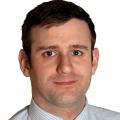
TRIBUTES have been paid to a "remarkable" sports scientist from Flintshire who died following a battle with a rare form of cancer.
Professor Keith Lyons, who was born in Buckley, died on May 13 at The Canberra Hospital in Australia.
He was 68 and had battled lymphoma of the brain, for which he had undergone several rounds of chemotherapy and radiotherapy.
After finishing at Mold Grammar School, he went on to study at the University of York, where he joined the anti-apartheid movement and in later years continued to speak out about the impact of apartheid on sport.
He also studied at Loughborough College and the London School of Economics, as well as studying for his PhD at the University of Surrey - where he had the chance to refine his interest in learning through an ethnographic study.
This paved the way for his unique approach to observing sport and laid the foundation for his future career in performance analysis.
Sport was a central part of Professor Lyons' life, as a rugby player, a coach, a performance analyst and a coach mentor.
The roles he performed were diverse; from lacrosse to canoeing, made possible by his ability to observe patterns and his desire to support people.
The suicide of his brother John - a former Wrexham FC player - in 1982 had a profound effect on his life, after which Professor Lyons became more introspective.
His wife Sue believed that it was this moment that solidified his desire to help others, especially those going through difficult times.
A triumphant moment for Professor Lyons came when he finally got to travel to a unified South Africa in 1995 as part of the Welsh Rugby World Cup Team.
He later recalled that one part of that trip, an outreach project to teach young black South Africans to play rugby, was one of his happiest moments.
Professor Lyons moved to Australia in 2002 with his family, who were the core of his identity.
The belief in the need to help others in their time of need led him to volunteer for the Rural Fire Service (RFS).
For years, he was there when the community needed him, fighting fires and helping at road traffic accidents.
The University of Canberra paid tribute to Professor Lyons and recognised the "major contributions" he made through his work as well as the impact it had on the lives of many staff and students.
In a statement on the university's website, a spokesman said: "Keith had an amazing professional career leading teams and creating thriving departments in the areas of biomechanics and sports analytics.
"He worked with elite level sporting teams and institutions at a national and international level.
"You would be hard pressed in the coaching world to find someone who didn’t know of Keith or hadn’t read or used his work.
"He moved to Australia from the UK in 2002 to join the Australian Institute of Sport (AIS) as the founding co-ordinator of the Performance Analysis Unit.
"He founded the Department of Biomechanics and Performance Analysis in January 2006. Keith was highly esteemed for his expertise in elite sport performance, coach education and teaching.
"Keith founded the National Institute of Sport Studies at the University of Canberra (now known as UCRISE) on March 30, 2009 and was appointed its director.
"He retired in 2013 but stayed connected to the Institute and the Faculty of Health.
"Keith supervised many PhD candidates in numerous disciplines, including nursing, sports, biomechanics and sports management; he also mentored several sports scientists throughout their careers.
"He was a visionary that few could appreciate at the time. He saw genuine worth in all of us and all we wanted to do, and we were all better for it."
Professor Lyons was preceded in death by his parents Donald and Joan, and his brother John.
He is survived by his wife Sue (73), and his two children Beth (37) and Sam (35), his grandchildren Ivy (9) and Jolyon (7), and his sister Judith.
Beth Ross, Professor Lyons' daughter, told the Leader: "The most common theme of the messages we have received was that dad was always there when things were hard.
"He was there to take the coaches for coffee when or call late at night when they lost or were under pressure.
"He never needed the limelight and always left them be when it was hard.
"Dad was the same with everybody - whether is was when he was a volunteer rural firefighter here in Australia or in the last year of his life with the nurses and those who cared for him when he needed to be in hospital.
"He would always ask ‘are you ok?’ and all the nurses said they knew he really cared about the answer.
"One wards man, dad met once on the way to a scan, used to visit dad at the end of his shifts to discuss the night and dad loved being able to help him work through the hard things.
"He was a remarkable man."



Comments: Our rules
We want our comments to be a lively and valuable part of our community - a place where readers can debate and engage with the most important local issues. The ability to comment on our stories is a privilege, not a right, however, and that privilege may be withdrawn if it is abused or misused.
Please report any comments that break our rules.
Read the rules hereComments are closed on this article